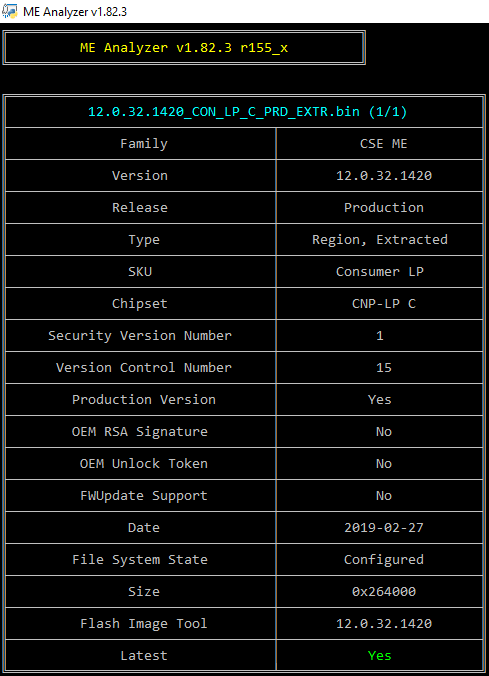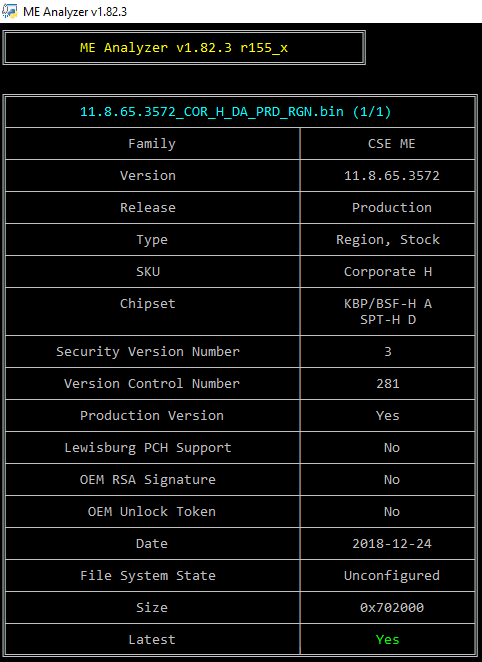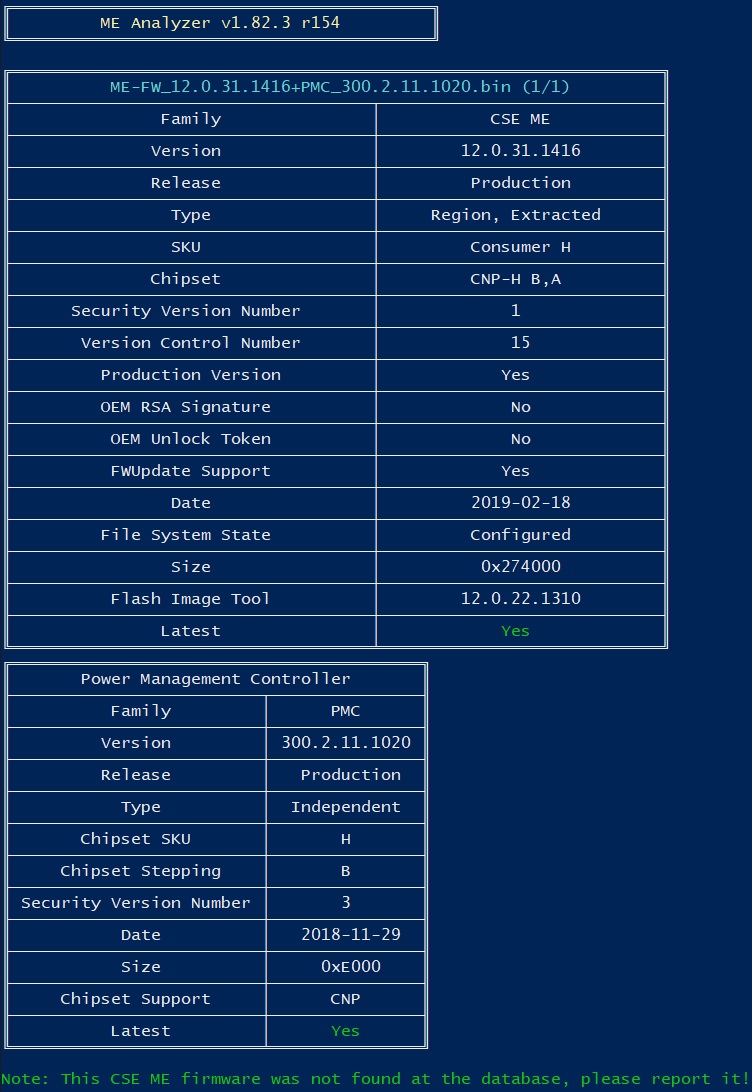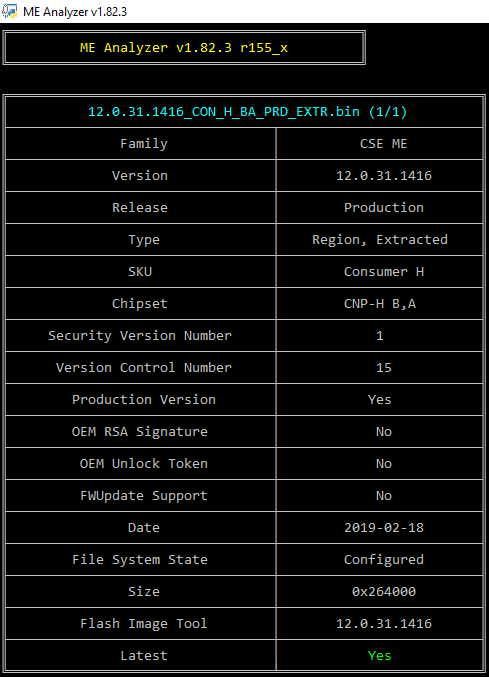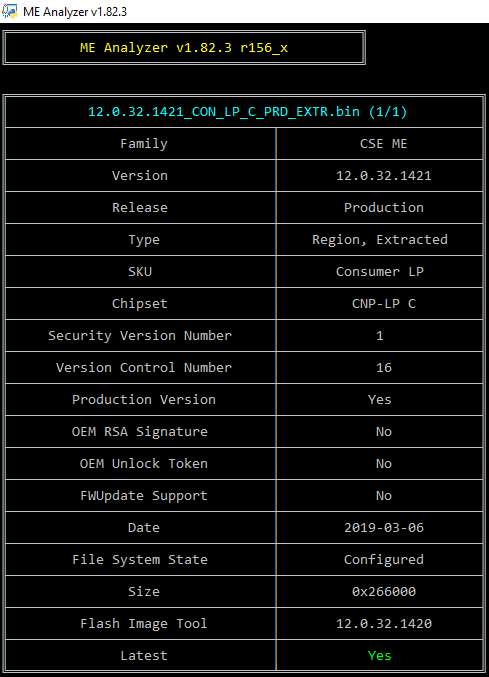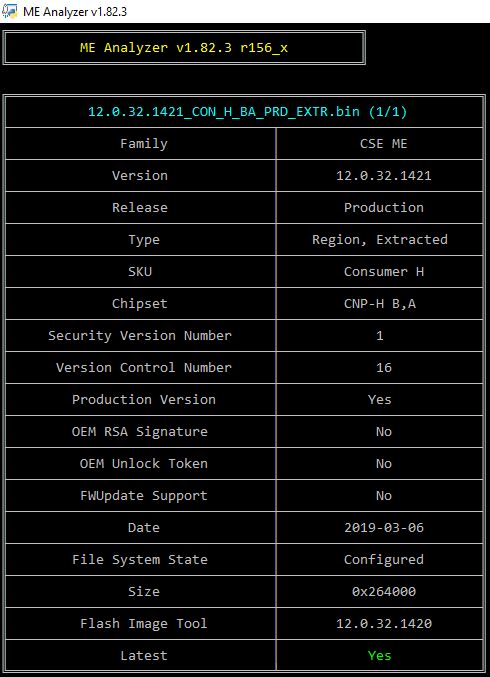Hi KaoDome, that’s a pretty deep dive you’ve made there. Even checked the File System out, very impressive.
Indeed they have. That’s why I was asking for those logs back then. They are no longer needed as I have sorted out how to distinguish the chipset steppings for each firmware now but it’s always good to have them here for future reference.
Exactly, OEM FIT configuration (MFS File 7) is useless for FWUpdate use. Only the stock/static Intel configuration (MFS File 6) is needed. The rest of the MFS Files (1-5, 8+) are present at Initialized/dumped firmware so that’s why you saw them. These can be removed by following [Guide] Clean Dumped Intel Engine (CS)ME/(CS)TXE Regions with Data Initialization.
Ha, interesting thought but it is not actually that sensitive. Each Chipset has its own key but HMAC is used for integrity and combines the hash of said key with a secret Intel private key which is known only to them. Since you cannot reverse a hash (MD5 in this case) to get the original content and the Intel private key is safeguarded, there is nothing to fear from those HMACs.
Yes I have noticed that as well. It is Intel being weird as far as I can tell. I have seen CNP-LP systems which report at MEInfo C, others D and even some A (probably a MEInfo bug at older versions). Both CNP-LP C and CNP-LP D are the same firmware-wise. MEA detects them as CNP-LP C because that’s what the firmware reports so go figure… ![]() Basically, for all released/Production CNP-LP systems, users need PCH-LP C firmware. One small exception is that one (literally one) Lenovo 330-15ICN laptop (stepping B) which was released very early so that Intel could say/reassure that “hey, we managed to release 1 Cannon Lake CPU in 2018”. Cannon Lake is dead now so we know how that turned out.
Basically, for all released/Production CNP-LP systems, users need PCH-LP C firmware. One small exception is that one (literally one) Lenovo 330-15ICN laptop (stepping B) which was released very early so that Intel could say/reassure that “hey, we managed to release 1 Cannon Lake CPU in 2018”. Cannon Lake is dead now so we know how that turned out.
Yes it does. The Dell Updater basically uses a lite FWUpdate EFI variant called “FWUpdate Reduced Size (RS)” so it fully respects the FD locks and the SVN/VCN/PV-bit restrictions of CSME and PMC firmware upgrades/downgrades.
Technically yes. I think the Dell Updater automatically skips updating the Engine firmware when it detects that it is newer so it should continue to update the BIOS, EC or whatever else it wants to. I agree with you though, you can wait for Dell to release newer firmware and avoid any potential issues, even if nothing like that has been reported here, if I remember properly. Dell is generally decent to good when it comes to Engine firwmware updates so yeah you can wait for them.
Thank you for your kind words, much appreciated. All this wouldn’t be possible without members such as you. ![]()
